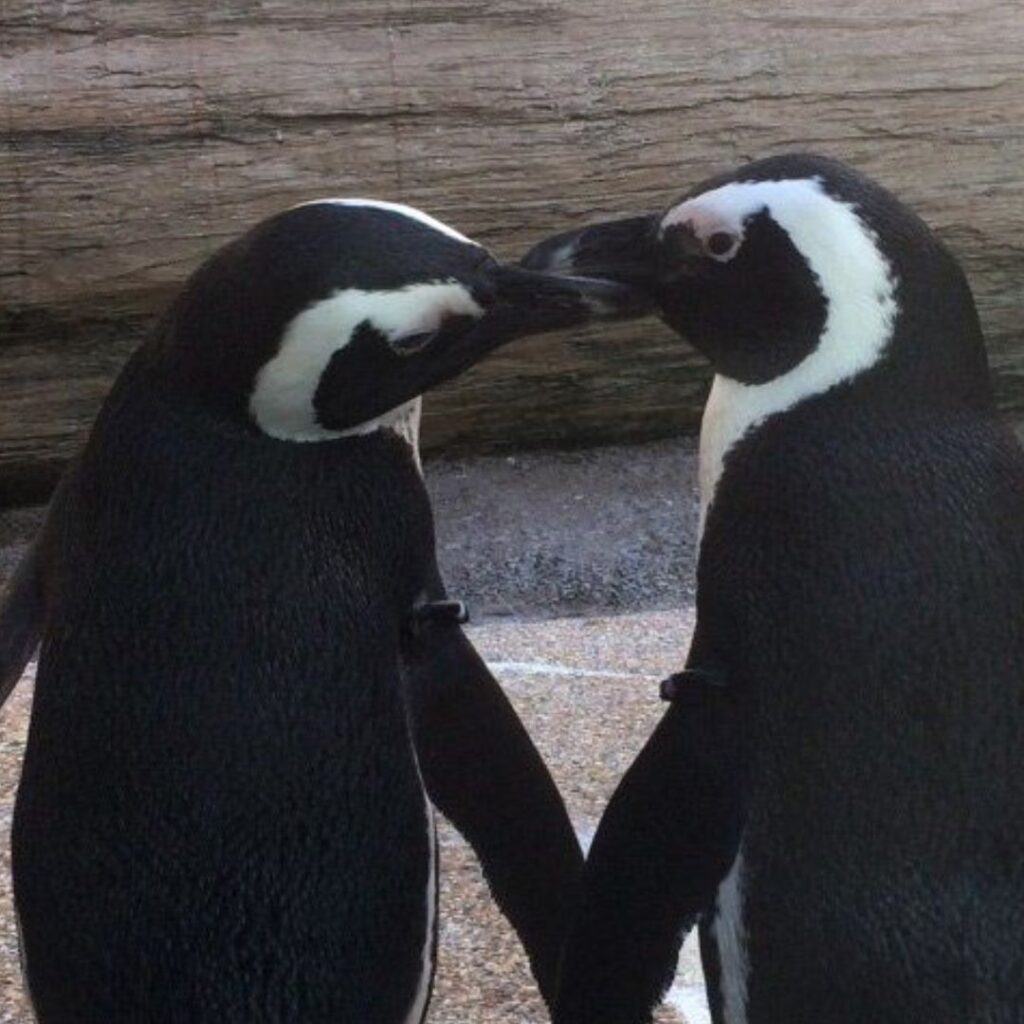
African penguins, also known as jackass penguins due to their donkey-like braying calls, face a serious threat to their survival. These charismatic birds, native to the southwestern coast of Africa, have experienced a dramatic decline in recent years. In 2024, the number of African penguins left in the wild raises significant concern among conservationists and animal lovers alike.
African Penguin Population 2024
As of 2024, experts estimate that only around 10,000 breeding pairs of African penguins remain in the wild. This number translates to approximately 20,000 to 25,000 individual birds. These figures represent a stark decline from historical populations, which once numbered in the millions.
The exact count fluctuates slightly from year to year due to various factors, including breeding success, mortality rates, and environmental conditions. However, the overall trend shows a consistent and alarming decrease in the African penguin population.
Also Read: Chinstrap Penguins – Everything You Need To Know
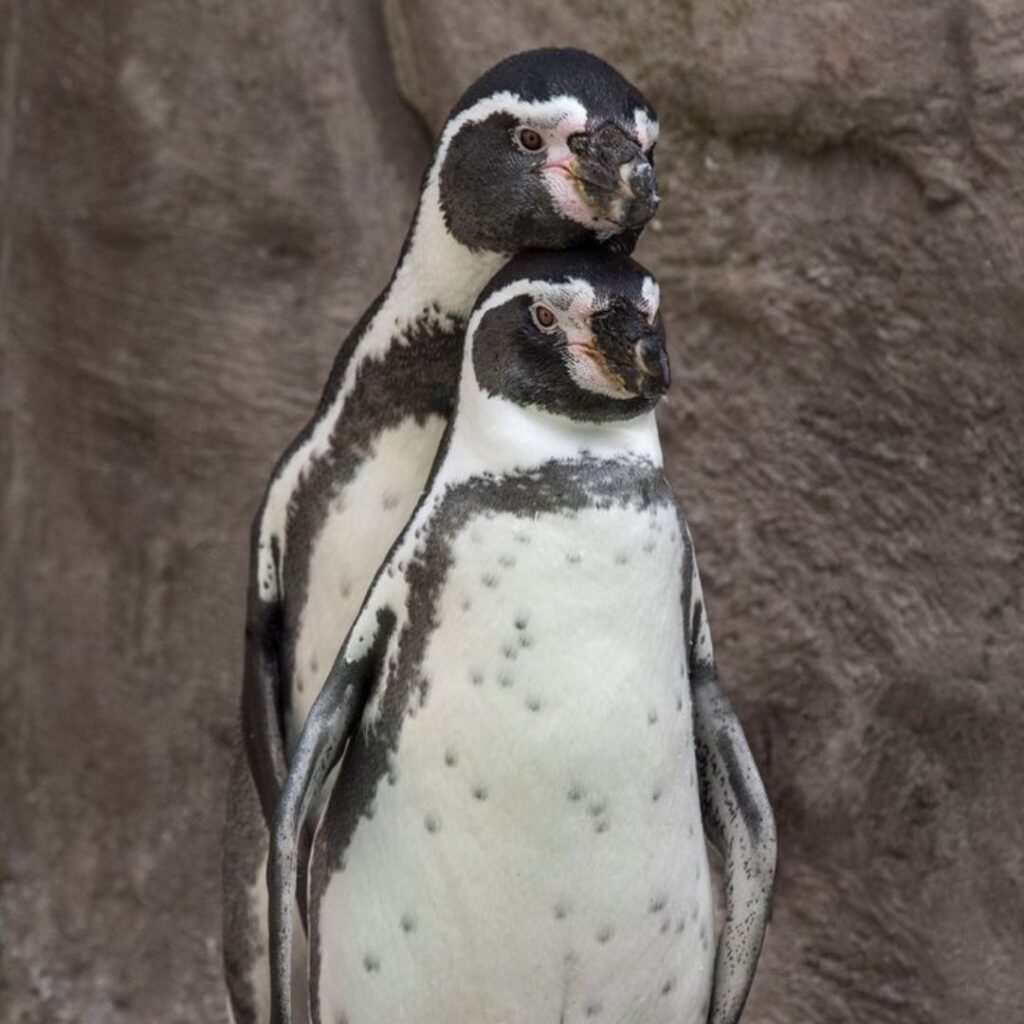
Why are African Penguins endangered? A brief history
To understand the gravity of the current situation, we need to look at the historical population numbers. In the early 20th century, African penguin colonies boasted millions of birds. Estimates suggest that in the 1920s, Dassen Island alone hosted about one million breeding pairs.
The decline began in the mid-20th century and has accelerated in recent decades. By the late 1970s, the population had dropped to roughly 220,000 breeding pairs. The downward trend continued, with numbers falling to about 147,000 breeding pairs by the mid-1990s.
The most dramatic decrease occurred between the late 1990s and the 2020s. During this period, the African penguin population plummeted by over 95%, leading to their classification as an endangered species by the International Union for Conservation of Nature (IUCN) in 2010.
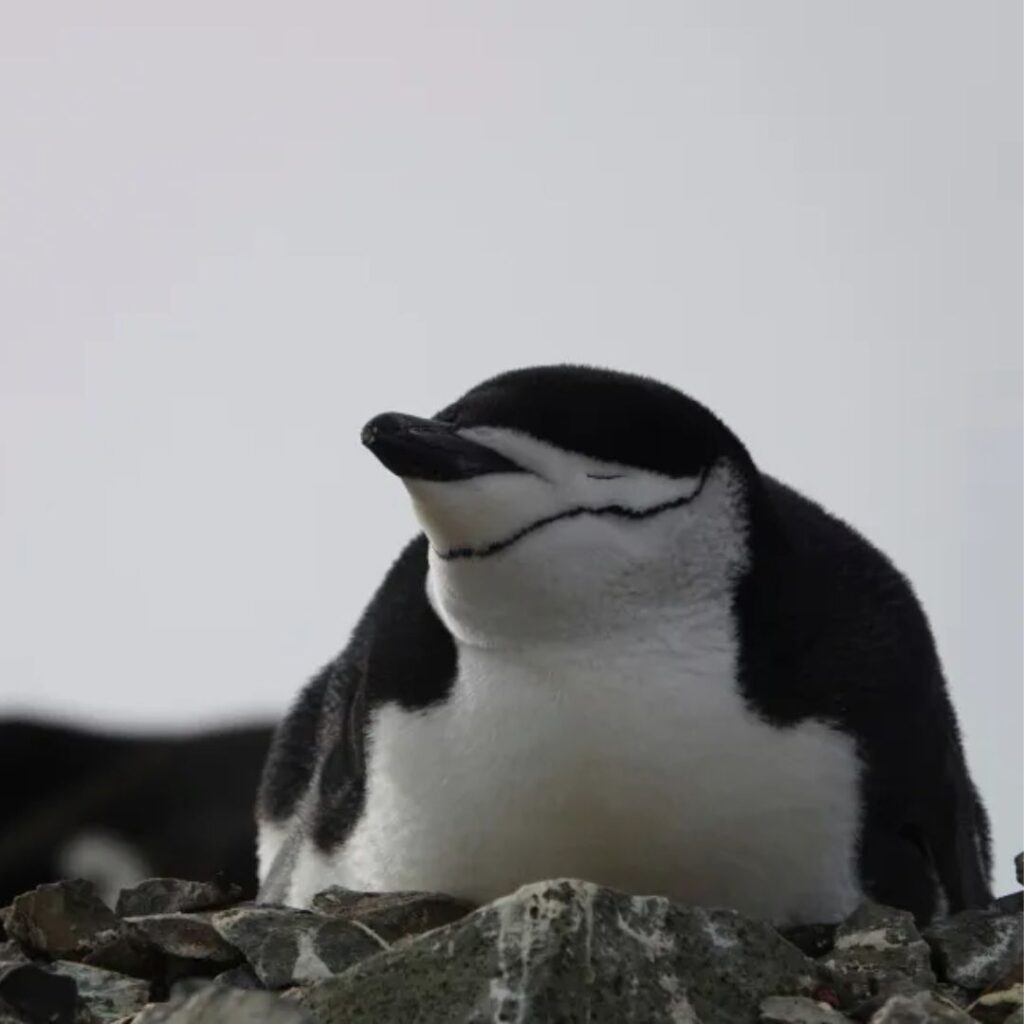
Why are African Penguins going extinct?
Several factors have contributed to the sharp decline in African penguin numbers:
1. Overfishing: Commercial fishing has depleted the penguins’ primary food sources, particularly sardines and anchovies. This reduction in prey availability affects both adult penguins and their ability to feed their chicks.
2. Climate change: Rising ocean temperatures alter fish distribution patterns, forcing penguins to travel further to find food. This increased energy expenditure impacts their breeding success and survival rates.
3. Oil spills: Major oil spills, such as the MV Treasure spill in 2000, have caused significant damage to penguin populations. Oil contamination can lead to hypothermia, poisoning, and reduced breeding success.
4. Habitat loss: Human activities, including guano harvesting for fertilizer, have destroyed nesting sites and altered the penguins’ breeding habitats.
5. Predation: Increased predation by seals, sharks, and land-based predators like feral cats poses an additional threat to penguin populations.
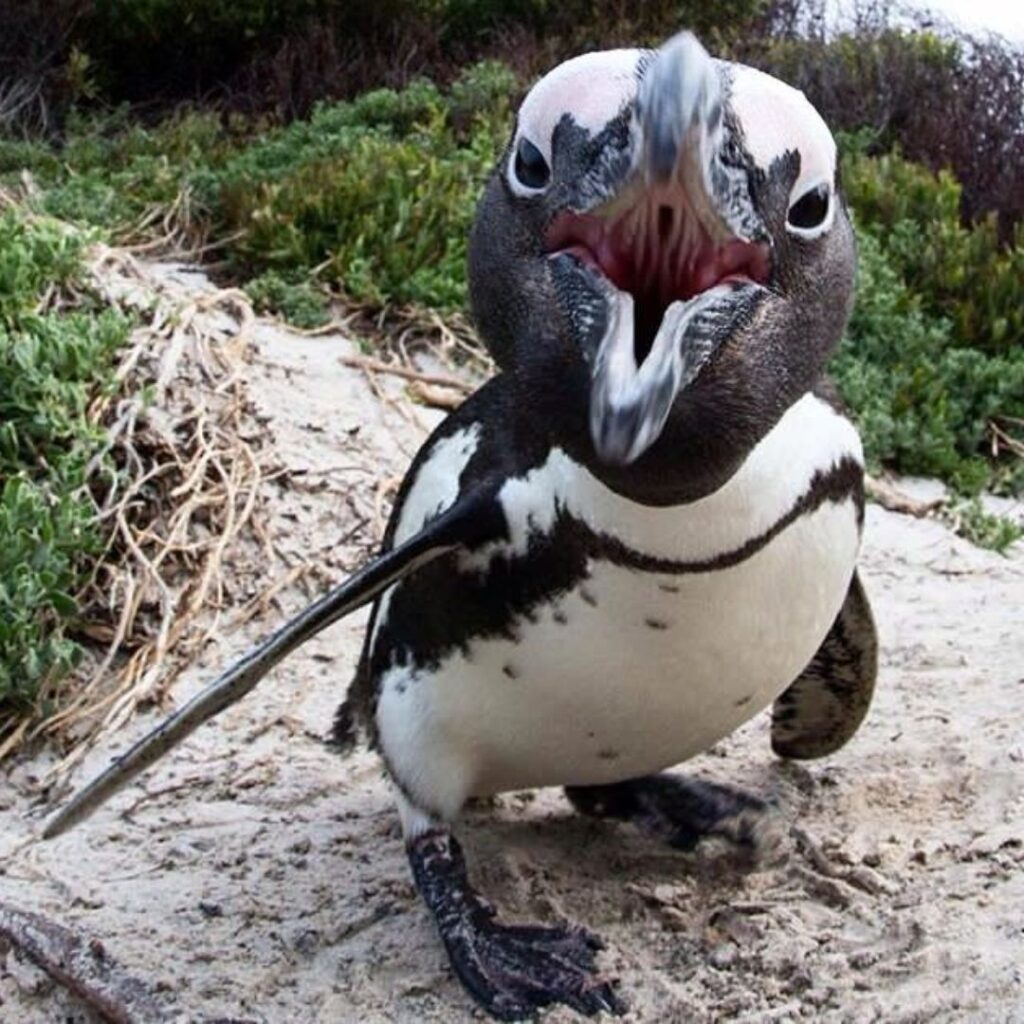
Conservation Efforts
Recognizing the urgent need to protect African penguins, various organizations and governments have implemented conservation measures:
1. Marine Protected Areas: Establishing protected areas around key breeding sites helps safeguard penguin habitats and their food sources.
2. Artificial nesting boxes: Conservationists provide artificial nests to compensate for the loss of natural breeding sites.
3. Rehabilitation centers: Facilities like SANCCOB in South Africa rescue and rehabilitate injured or oiled penguins, helping to boost survival rates.
4. Fishing regulations: Efforts to implement sustainable fishing practices aim to preserve the penguins’ food sources.
5. Research and monitoring: Ongoing studies track population trends and help inform conservation strategies.
6. Education and awareness: Public outreach programs raise awareness about the penguins’ plight and encourage support for conservation efforts.
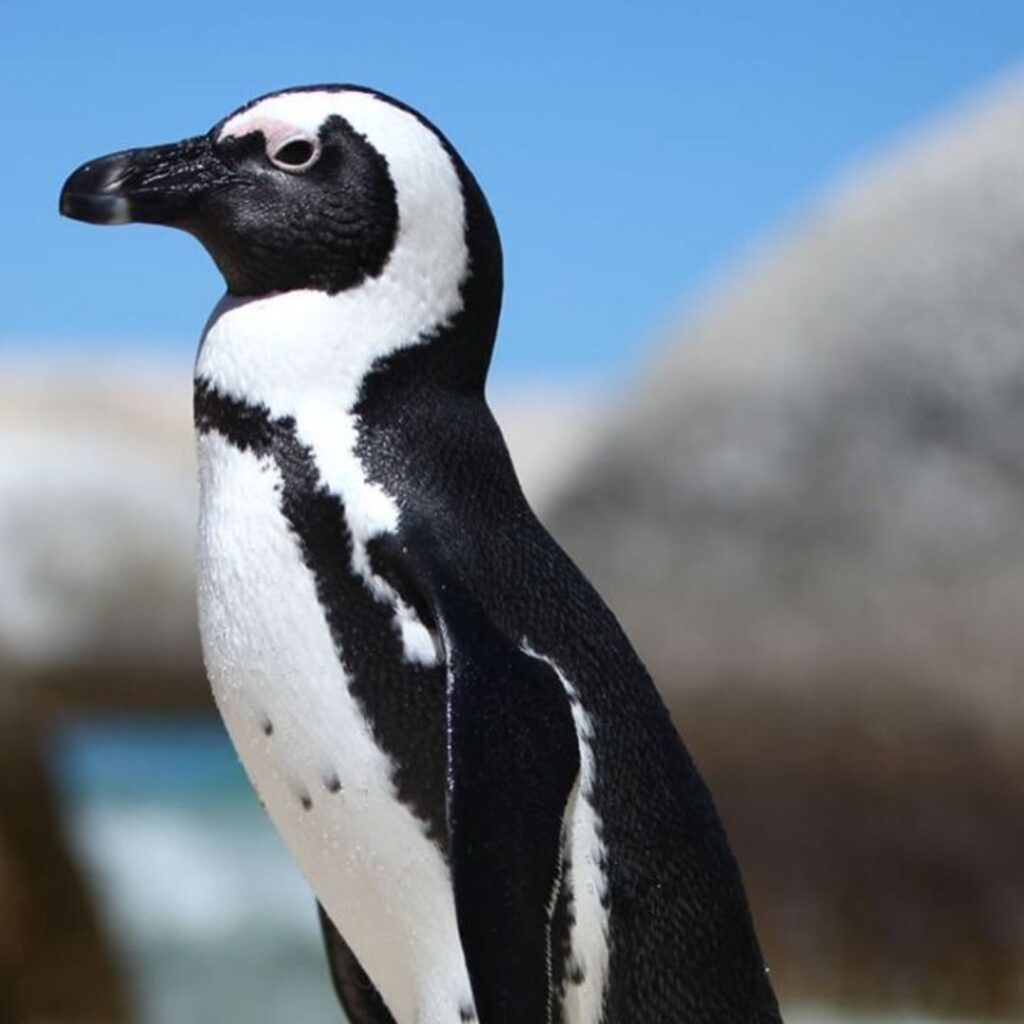
Why are African Penguins important?
African penguins play a crucial role in their ecosystem. As predators, they help maintain the balance of marine life in their habitats. Additionally, their guano deposits enrich coastal waters, supporting plankton growth and, in turn, fish populations.
These penguins also hold significant cultural and economic value. They attract tourists to coastal areas, contributing to local economies. Their charismatic nature makes them excellent ambassadors for marine conservation, helping to raise awareness about broader ocean health issues.
The future of African penguins
The future of African penguins remains uncertain. While conservation efforts have shown some localized successes, the overall population continues to decline. Projections suggest that without significant intervention, African penguins could face extinction in the wild within the next few decades.

However, hope remains. The collaborative efforts of scientists, conservationists, governments, and local communities can make a difference. By addressing the root causes of their decline and implementing comprehensive protection measures, we can work towards stabilizing and eventually recovering African penguin populations.
Also Read: 8 Interesting Facts About Chinstrap Penguins
Conclusion
The estimated 10,000 breeding pairs of African penguins left in 2024 represent a species on the brink. This dramatic decline from millions to mere thousands in just a century highlights the urgent need for continued and intensified conservation efforts. The fate of these beloved birds rests in our hands, and the actions we take in the coming years will determine whether future generations will have the chance to witness African penguins in their natural habitat.
Pingback: African Penguins - Everything You Need to Know